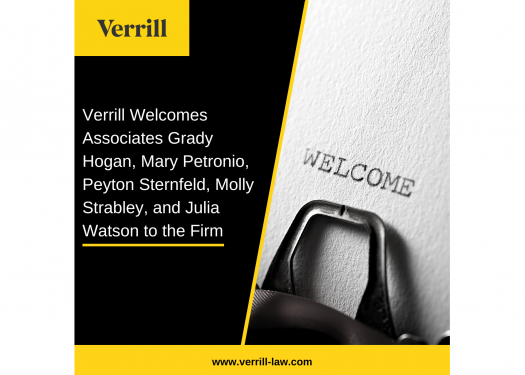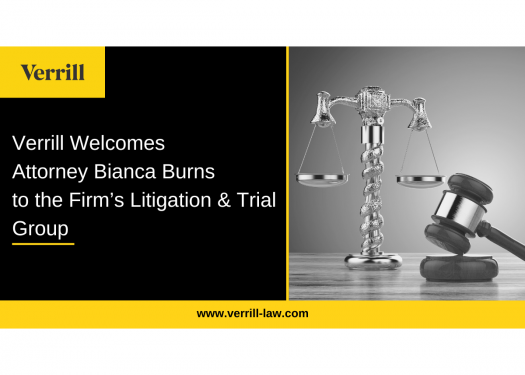The PPP Litigation Wave Is Coming: Anticipated "Qui Tam" Lawsuits Under the False Claims Act
Many businesses and other borrowers, such as nonprofit organizations, that received Paycheck Protection Program (PPP) loans are now several weeks into disbursing their PPP loans for payroll, mortgage or lease payments, and utility payments. Businesses submitted applications to obtain their PPP loans in which a representative of the business made a number of certifications, including a certification that the loan was “necessary to support ongoing operations.” At some point in the future, many of these businesses will attempt to have some, or all, of the loans forgiven. Throughout this process, these businesses face exposure, including exposure to their own employees, some of whom may file “Qui Tam” lawsuits against their employers alleging violations of the False Claims Act. Each business participating in the PPP should be aware of the risk, and take steps to prevent or prepare for such potential lawsuits.
The PPP and the Certifications Made by Small Businesses to Secure Loans
In response to the COVID-19 pandemic, congress passed the Coronavirus Aid, Relief, and Economic Security Act (CARES Act). The CARES Act is the largest emergency stimulus package in history, devoting trillions of dollars worth of government funds to address the devastating impact of COVID-19 on the U.S. economy through direct impacts of the disease itself as well as self-induced damage to the U.S. economy caused by shutdowns, shelter-in-place restrictions, and quarantines. The CARES Act includes a myriad of provisions to boost the economy, including the PPP, which offers billions of dollars of loans forgivable under certain conditions.
In order to secure PPP loans, businesses were required to submit “Borrower Application Forms.” These forms included various “Certifications and Authorizations” on the second page of the application packet. It is certainly likely that many applicants, in the rush to secure PPP loans, glossed over these certifications. However, several of these certifications may expose those businesses to litigation exposure for possible allegations of fraud or false claims.
Relevant Certifications under the PPP
Applicants for PPP loans certified, among other things, that:
- the applicant is eligible to receive a PPP loan;
- the loans will be used only for the business-related purposes set forth by the PPP;
- “current economic uncertainty makes this loan request necessary to support the ongoing operations of the Applicant;”
- and the funds will be used to retain workers and maintain payroll or make mortgage interest payments, lease payments, and utility payments as specified under the PPP, and that if the funds are knowingly used for unauthorized purposes, the applicant may be liable for federal law violations punishable by, among other things, substantial fines and possible prison sentences.
The PPP Application requires that the certifications be made “in good faith.”
On May 13, 2020, the Small Business Administration (“SBA”) responded to frequently asked questions by declaring that any borrower, together with its affiliates, which received PPP loans with an original principal of less than $2 million will be deemed to have made the required certifications concerning the necessity of the loan request in good faith. The SBA further stated that if it determines that a borrower “lacked an adequate basis for the required certification concerning the necessity of the loan request,” the SBA will seek repayment of the loan and will inform the borrower that no forgiveness will be forthcoming. Full repayment of the loan will preclude “administrative enforcement or referrals to other agencies” regarding the certification. This updated guidance from the SBA should significantly reduce a business’s exposure for its certifications regarding “necessity of the loan”, but certification exposure will remain as to the business's certifications regarding loan eligibility and how loan proceeds are to be spent.
Most businesses applying for, and accepting, PPP loans are doing so with the hope and possible expectation that all or most of the loans will be forgiven, turning the loans essentially into grants. After a business has distributed its PPP funds and when it seeks loan forgiveness, it will be required to submit paperwork documenting what the money was spent on. Businesses making distributions of PPP loans are hopefully keeping meticulous records of those distributions. Such record-keeping will hopefully assist in obtaining substantial loan forgiveness. Such record-keeping might also assist in defending against future fraud claims.
The False Claims Act and Qui Tam lawsuits
Future fraud claims may come from individuals, including one’s own employees, in the form of “Qui Tam” lawsuits seeking recovery under the False Claims Act (FCA), 31 U.S.C. § 3729.
What is the FCA?
The FCA was enacted during the Civil War in 1863 following concerns that suppliers of goods to the Union Army were defrauding the government. The FCA provided that false claims to the government were liable for double damages plus further penalties. The statute has been repeatedly amended, including amendments in 1986 allowing for treble damages and raising the limits of further penalties. Violations of the FCA require knowledge of the falsity of claims made to the government, which can include actual knowledge, deliberate ignorance of the truth or falsity of the information, or reckless disregard for the truth or falsity of the information. The FCA definition of “claims” includes programs such as the PPP, in which the Federal Government is requested to reimburse the contracting party.
What is a Qui Tam lawsuit?
The FCA allows a private person to file suit for violations under the FCA on behalf of the government. A suit filed by a person on behalf of the government is known as a “Qui Tam action” and the person bringing the action is referred to as a “relator.” The action is filed with the court under seal and is provided to the local U.S. Attorney. The action is initially sealed for 60 days, allowing for the government to investigate the allegations in the action. The government then must notify the court whether it will “intervene” in the action, or decline to take over the action, in which case the relator can proceed without the government. If the government intervenes in the Qui Tam action, it takes over primary responsibility for pursuing the action, including the authority to dismiss or settle the action.
Why would an individual bring a Qui Tam lawsuit under the FCA?
An individual may choose to initiate a Qui Tam lawsuit against a business, asserting that the business committed FCA violations with regard to PPP loans. This could include allegations including, but by no means limited, to the following:
- the business was not eligible for PPP loans;
- the business did not spend the PPP money as required or made inaccurate filings about such expenditures; and/or
- the loan was not “necessary to support the ongoing operations of the applicant, or that the small business had recourse to other moneys.
Why would an individual make such allegations? The most obvious reasons might include:
- To secure a financial reward. If the government intervenes in the qui tam action, the relator is entitled to receive between 15 and 25 percent of the amount recovered by the government. If the government declines to intervene, the relator’s share is increased up to 30 percent.
- To obtain “whistleblower” status and to protect against termination or other negative employment actions. The FCA protects employees, contractors, and agents who engage in protected activity from retaliation in the form of their being “discharged, demoted, suspended, threatened, harassed, or in any other manner discriminated against in the terms and conditions of employment.” 31 U.S.C. §3730(h)(1).
- To “get back at” or to otherwise punish a business receiving PPP loans for a variety of reasons.
- To take action against perceived wrongdoing out of a sense of moral righteousness or obligation.
What can businesses do to protect against this potential litigation?
At this point, businesses have already made their “good faith” certifications in seeking PPP loans. Businesses will, in the future, be making further certifications or other representations in seeking possible forgiveness of those loans. In order to minimize the risks of a successful Qui Tam lawsuit under the FCA, businesses should be focusing on meticulous record-keeping of PPP expenditures and should carefully assess those expenditures for which it seeks loan forgiveness. It is not clear to what extent PPP loan forgiveness requests will be reviewed, but businesses should plan for close and careful scrutiny, particularly if the loan exceeded $2 million. Each payroll expense, mortgage or rent payment, and utility payment must be carefully documented.
When the time comes to seek loan forgiveness, a business will hopefully be in a strong position to make such a request, having spent PPP funds only on eligible expenses and having documented such expenditures meticulously. Handling the PPP loan and forgiveness request properly and documenting all aspects of the loan’s use will put businesses in a strong position to prevent, or defend against, any potential Qui Tam lawsuits alleging fraud. Such proper handling of the loan, combined with the SBA’s recent guidance essentially presuming “good faith” for certifications regarding loan necessity, will put businesses in a strong position to prevent, or defend against, any potential Qui Tam lawsuits alleging fraud or other wrongdoing.
If you have any questions or your business is facing a Qui Tam or FCA lawsuit, contact Phillip Bixby or another member of Verrill’s Litigation & Trial Group.














